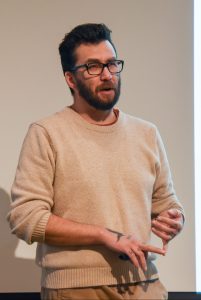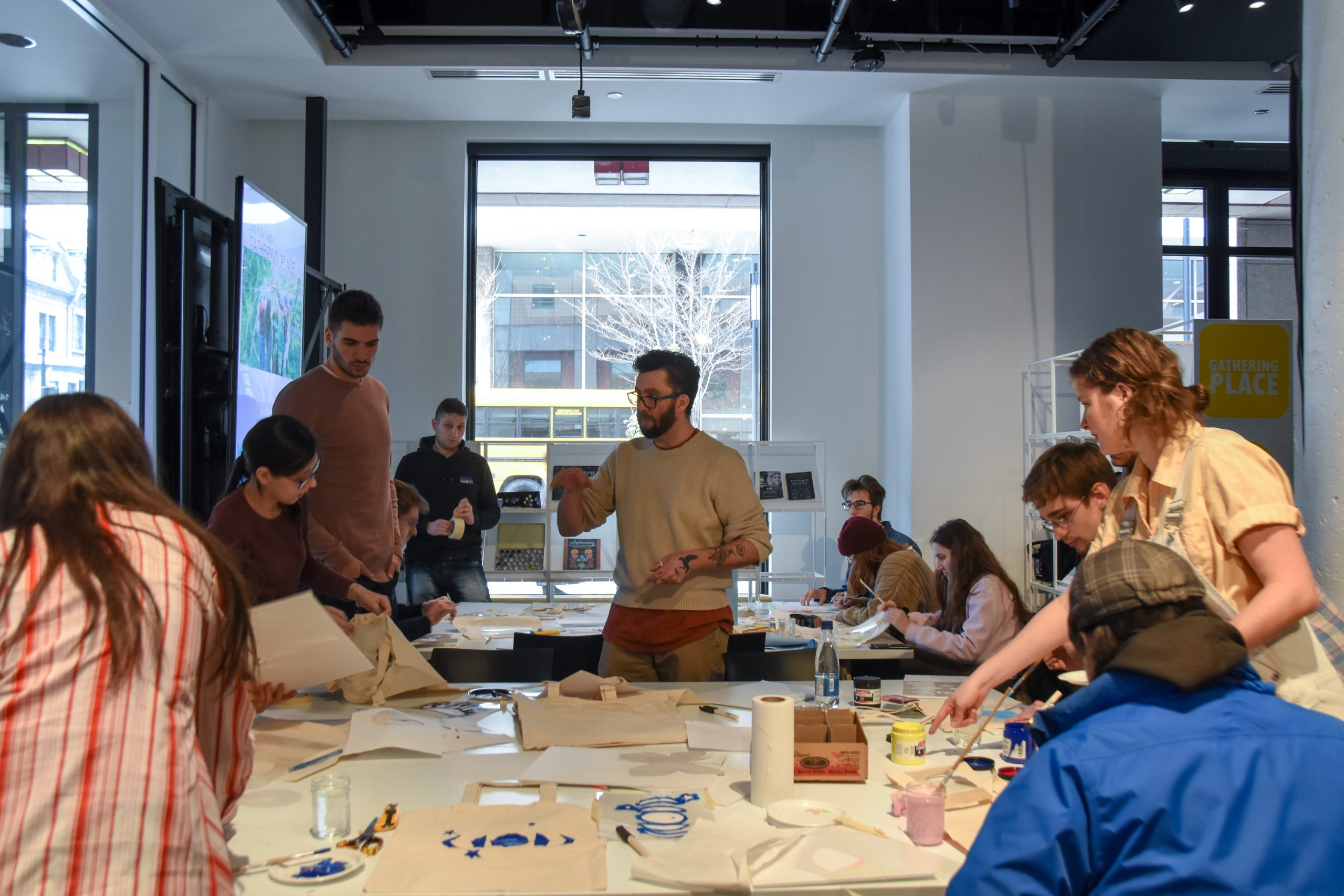Jason Sikoak hosted a workshop at 4th Space on Nov. 20 about Indigenous art and climate justice.
An Inuk Perspective, with Jason Sikoak is an event part of the five-year project led by Elizabeth Fast, an assistant professor in the Department of Applied Human Sciences at Concordia.
The project is called Land as our teacher, and, according to Fast, it occurs “to create land-based programming by and for Indigenous youth to understand the impact [of land-based teachings].” Her initiative has a lot of collaborators, as well as an Indigenous youth advisory council, as she explained.
Land as our teacher is not about raising awareness to non-Indigenous people, but forming a safe space to promote exchanges between communities and connection with nature.
Uniting nations through their roots is a great way to heal Indigenous difficulties, according to Fast. She agreed that Indigenous perspectives have a wholesome and sustainable approach in relation to the environment and community, to name a few.
She also explained how meaningful the project is, especially for Indigenous youth who grew up disconnected from their culture and land for reasons related to colonization.
Fast is driven by offering Indigenous youth land connectedness she did not experience growing up in Manitoba. Understanding the interaction with nature shaped an essential part of Indigenous peoples’ language, culture and identity.

This initiative is purposefully addressing problems within Indigenous communities such as lateral violence, Fast said. It is the result of various assimilation and discrimination policies from the Federal and Provincial governments. According to Indigenous Services Canada, about 30 Indigenous communities across the country still don’t have access to clean water to this date.
Fast acknowledges the lack of education regarding Indigenous knowledge and culture and encourages a focus on Indigenous perspectives. She reiterates her support of The Indigenous Directions Action Plan, a Concordia based initiative, which promotes decolonization and Indigenization of the University with concrete steps.
This workshop was also meant to acknowledge art as a vehicle for social and environmental progress. Its facilitator, Jason Sikoak, who is from Nunatsiavut, an Inuit territory in Newfoundland and Labrador, taught attendees on how to make painted designs on fabric bags. He stressed the importance of making sustainable art with reusable and recycled material.
Sikoak’s perspective on climate change is based on territorial exploration with his father who witnessed the deterioration of the land over the course of his life. The artist started to address environmental issues with his art after his brother got arrested during the Muskrat Falls protest in Manitoba over the Lower Churchill project.
The ongoing hydroelectric project, next to Muskrat Falls in Labrador, requires the flooding of a 41-square-kilometre reservoir for the dam. This reservoir is home to soil and plants which contain mercury, and flooding can release carbon that fuels a process called methylation. According to an article published by the CBC, this phenomenon generates the formation of methylmercury, a neurotoxin linked to health problems. It can poison food supplies, especially fish, which is essential for Inuit survival.
Hydroelectricity is seen as a great green alternative, but it actually devastates Indigenous lands, explained Sikoak. Flooding thousands of hectares of forest destroys the fauna and flora as well as impacting the population who depends upon it.
Sikoak insisted on the importance of everyday behaviour regarding a sustainable lifestyle such as avoiding single-use items, buying local, and using reusable bags.
In addition to individual behaviours, collective initiatives such as environmental art proposed by Greenpeace and climate strikes are creating more exposure. A significant example is the climate march on Sept. 27, with approximately half a million protesters in the streets of Montreal demanding for the government to make environmental changes.
Regardless of an individual’s understanding of the state of the environment, the workshop demonstrated that we are directly affected by climate change and it is only by uniting that we can redefine governance and the way large corporations operate.
“We can’t eat money,” Sikoak said.
Photos by Cecilia Piga




